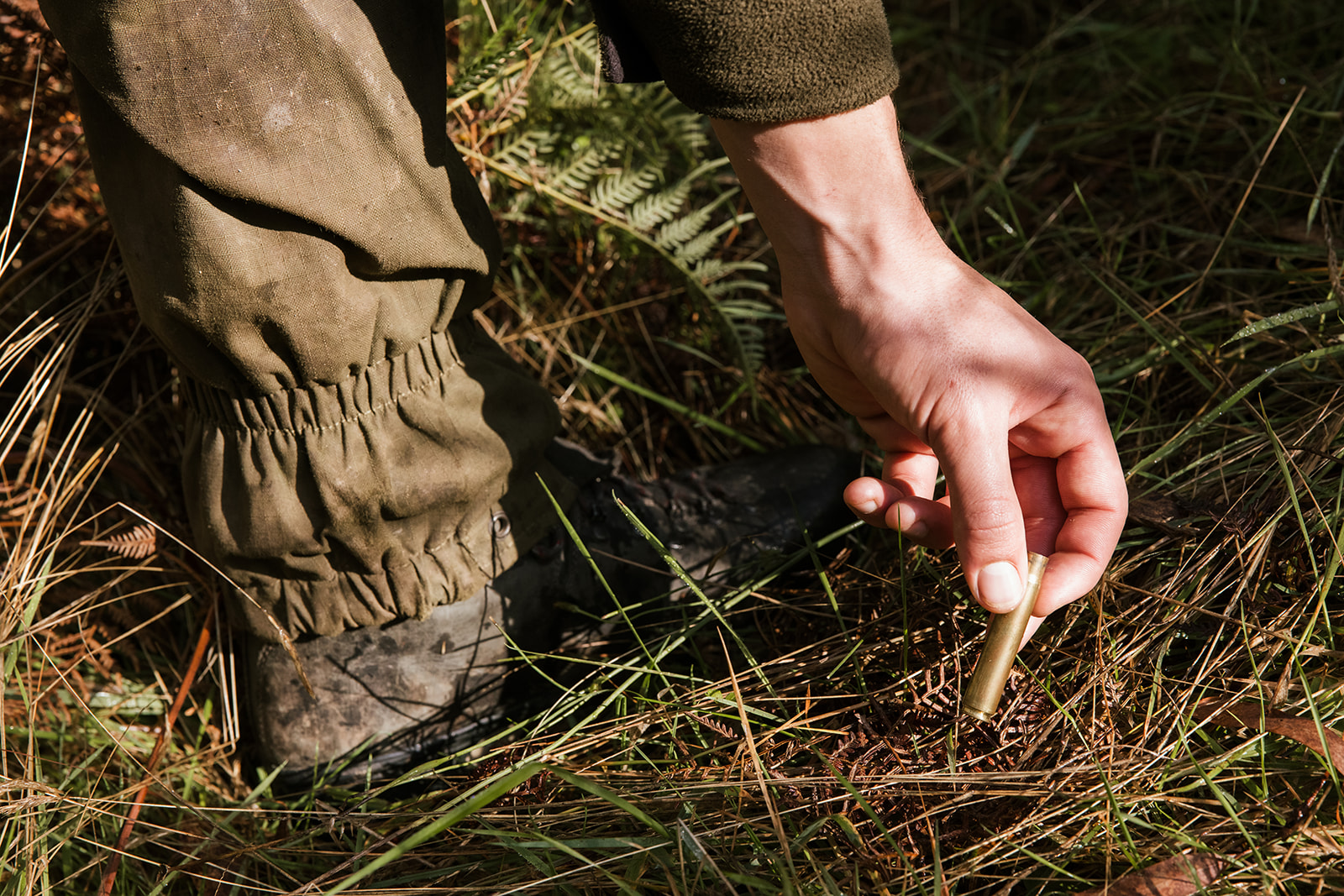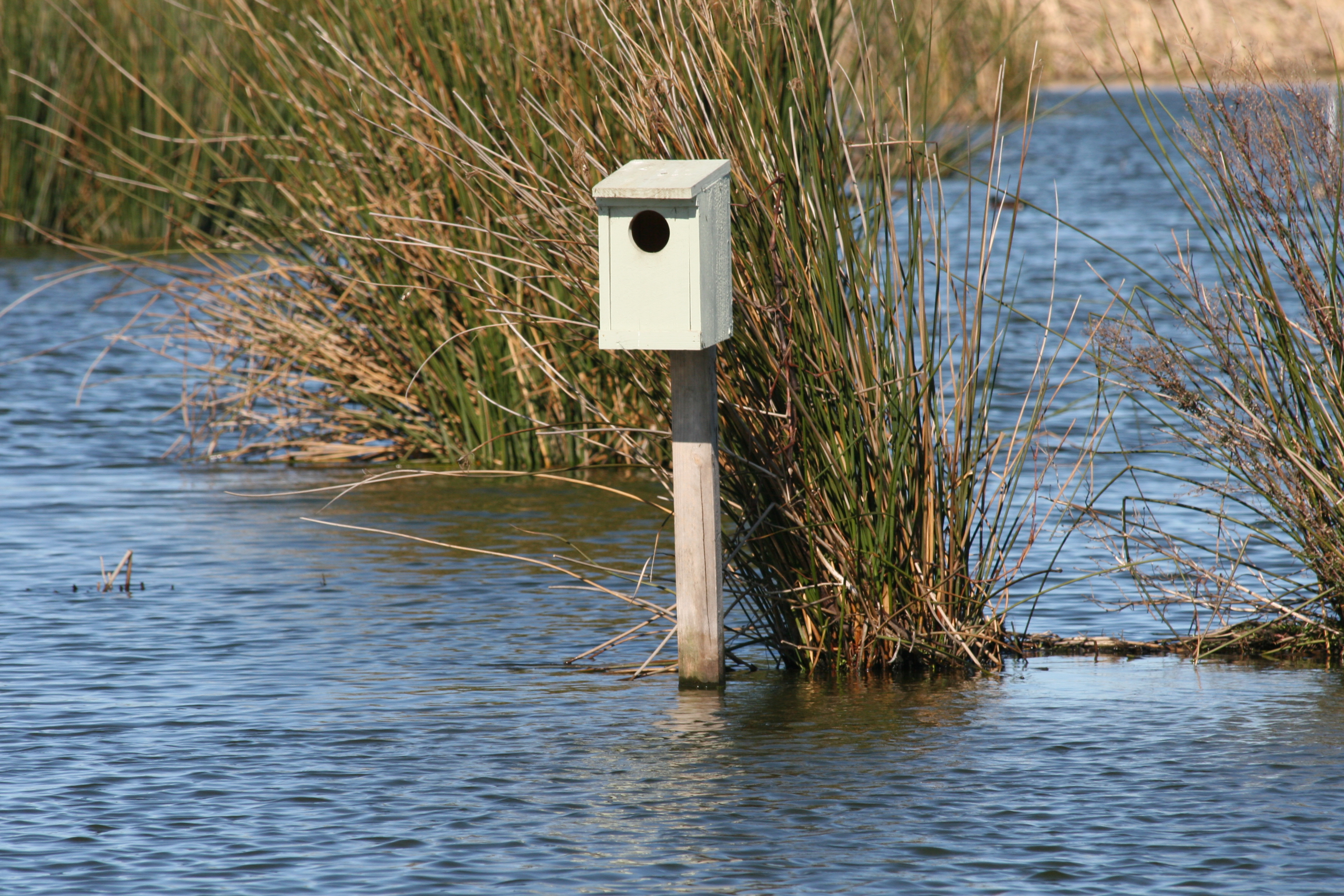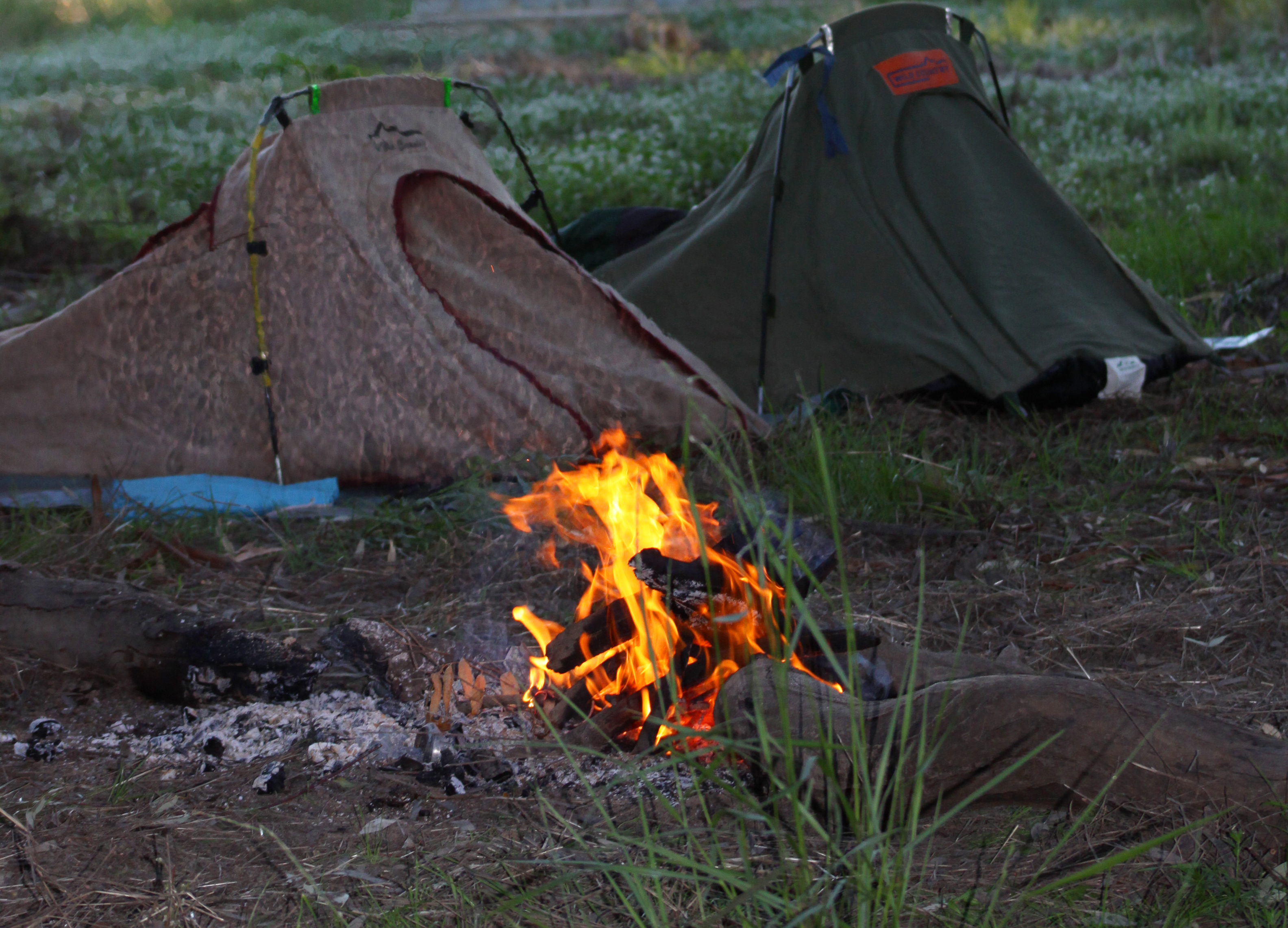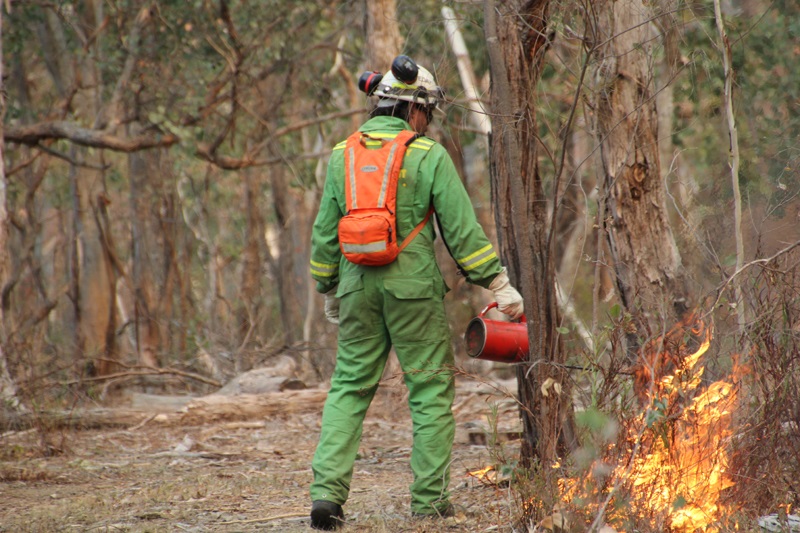Caring for the environment
 Victoria has many areas across the state that are available for game hunting. Victoria's parks, forests and wetlands are special places, but to remain so, they need your help. Tread lightly to minimise your impact on the natural environment and maintain quality habitat for quality hunting.
Victoria has many areas across the state that are available for game hunting. Victoria's parks, forests and wetlands are special places, but to remain so, they need your help. Tread lightly to minimise your impact on the natural environment and maintain quality habitat for quality hunting.
Please help to protect these important areas by following some basic rules:
- keep to the tracks
- pick up all spent shotgun shells and cartridge casings
- bury all feathers, offal and carcasses (be mindful of Aboriginal cultural heritage issues)
- take all other rubbish home
- dispose of deer carcasses thoughtfully
 Hunting encourages people to connect with, and to conserve, the natural environment. This interest stems from continuous and repeated exposure to wildlife and the environment and a hunter’s need to understand the ecology and behaviour of their quarry in order to be an effective hunter.
Hunting encourages people to connect with, and to conserve, the natural environment. This interest stems from continuous and repeated exposure to wildlife and the environment and a hunter’s need to understand the ecology and behaviour of their quarry in order to be an effective hunter.
While a 2019 economic study identified that hunters make a $356 million economic contribution to the State, hunters also contribute a considerable amount of time and resources to the conservation of wildlife habitats across the landscape. Conservation activities range from wetland rehabilitation, wildlife and pest control programs, nest box construction, revegetation and disease monitoring to name a few.
The frequency with which hunters access the natural environment and remote parts of the state put hunters in a unique position. The Victorian hunting community can expand the valuable role it plays in conservation by linking into existing conservation and surveillance programs which will help maintain a healthy environment that will benefit all Victorians. A few of these programs are listed below.
Species distribution
The Victorian Biodiversity Atlas (VBA) is a tool for government agencies, environmental consultants, researchers and the public to share information about the distribution and abundance of species in Victoria. Reported data that feeds into habitat distribution models for these species. The VBA also includes automatic processes to verify the accuracy of the data and apply new taxonomic updates.
For more information, visit the Victorian Biodiversity Atlas.
Birdata
Originally developed in 2005, Birdata provides an online platform for citizens and researchers to enter bird survey information data. Birdata contains data about Australian birds spanning over 50 years, with over 24 million bird sightings. It provides information about the distribution and abundance of birds and how their populations have changed over time. Surveys are submitted through the Birdata App. For more information, visit Birdlife Australia.
FeralScan Pest Mapping
Pest animals cause significant damage to our environment, the economy and society. The Feral Scan App can be used at any time to record the location of pest animals in your local area, record the problems they are causing, and record control actions you undertake. Your records will be submitted to the FeralScan community pest animal mapping website www.feralscan.org.au, to help develop and maintain an up-to-date picture of pest animals throughout your region. This information can be used to monitor populations, and to better target pests through coordinated pest control programs.
For more information on this App, go to the following website.
Fox bounty
Foxes are established pest animals in Victoria. They cannot be eradicated from the state and require ongoing management by all public and private landowners.
Effective fox management requires an integrated approach utilising all available management practices including poison baiting, trapping, exclusion fencing, fumigation and appropriate animal husbandry. Hunting can play an important role in supporting an integrated management approach.
This program rewards eligible Victorian hunters with a $14 bounty reward for each fox killed. For more information on this program, visit Agriculture Victoria.
Pest and disease surveillance
Hunters already contribute to disease surveillance during the opening weekend of the duck season by providing birds for testing for avian influenza.
Early intervention is critical in a disease outbreak. If you suspect a disease outbreak or have seen something unusual and you’re not sure whether it’s an exotic pest or disease – report it.
For more information about avian influenza, visit Avian influenza information for hunters - Game Management Authority.
To report pests and diseases of animals (including livestock, wildlife, birds and aquatic animals) phone the Emergency Animal Disease Watch Hotline on 1800 675 888 (24 hours). You can also report an incident to Agriculture Victoria or your State Wildlife Health Australia Coordinator. Further information can be found on the Wildlife Health Australia website and the Agriculture Victoria website: Animal diseases | Biosecurity | Agriculture Victoria.
To report pests and diseases of plants, call the Exotic Plant Pest Hotline –1800 084 881.
For more information about plant pests and diseases, visit Report an unusual plant insect pest or disease | Pest insects and mites | Biosecurity | Agriculture Victoria.
Weeds
State prohibited weeds are the highest category of declared noxious weeds in Victoria. By definition they are either not yet in Victoria, or are here in small numbers, where their eradication is still possible.
The government aims to prevent the introduction of state prohibited weeds into Victoria and to detect and eradicate any infestations before they become widespread.
By preventing state prohibited weeds from becoming widespread, hunters can help minimise the harmful impact of these species to the economy and habitats relied upon by game species like ducks.
Report any sightings of state prohibited weeds by calling 136 186 or following the instructions on this website: State prohibited weeds in Victoria | State prohibited weeds | Weeds | Biosecurity | Agriculture Victoria
Here are some basic rules you should follow when camping:
- Camp in an existing campsite rather than create a new one and camp at least 20 metres from any creek, lake or wetland (this is to ensure that areas near the water remain available for use by other visitors and to keep the waters free of pollution).
- Only drive on formed tracks and roads. Park immediately adjacent to tracks where it is safe to do so and take care not to damage vegetation around campsites with vehicles.
- Be careful when camping under trees. Trees can lose their limbs at any time, but particularly during high winds.
- Do not dig trenches around tents. With modern tents, it is unnecessary, particularly if you choose a well-drained or raised site.
- Take your rubbish home. Think before throwing out food scraps as they can be harmful to native animals, and some waste (like fruit peelings) does not decompose quickly. Don't burn or bury rubbish. Burying food waste disturbs the soil and native animals will just dig it up later.
- If you come across other people's rubbish, do the bush a favour and take it out with you.
- Where there is a toilet, use it. Where toilets are not available, choose a spot at least 100 metres from campsites, tracks, streams, swamps and other waterbodies, dig a 15 cm hole and bury your waste and toilet paper. Chemical toilets must be removed from campsites and emptied according to the manufacturer's instructions.
- Firewood is in short supply in many areas. Gather firewood well away from your camp and use it sparingly, keep it small and be conservative in your use of fuel or – better still – bring your own. Where possible, use a lightweight stove for cooking.
- Use only dead fallen wood. Standing trees, even dead ones, are a home for wildlife and a part of the scenery. Do not cut down or damage standing trees or vegetation.
- Hollow logs are prime real estate for our wildlife and must not be used as firewood.
- Take care with fire – observe all fire regulations and Total Fire Ban days. Use existing fireplaces rather than create your own. Ensure fires are safe and that they are completely extinguished when you leave.
- If dogs are permitted at your campsite, ensure they are adequately restrained to protect wildlife and other campers.
- Protect water quality – wash-up at least 50 metres from streams and avoid using soap (use gritty sand and a scourer instead).
- Leave campsites tidy.
 Restrictions apply to having campfires in Victoria. These restrictions are important to reduce the chance of a bushfire that could result in loss of life and property. They are actively enforced.
Restrictions apply to having campfires in Victoria. These restrictions are important to reduce the chance of a bushfire that could result in loss of life and property. They are actively enforced.
If you would like to know how to safely light and maintain your campfire, please take a look at this video produced by the Department of Energy, Environment and Climate Action.
For full details on the use of campfires and barbecues please visit the Department of Energy, Environment and Climate Action.
In order to maintain the quality of the hunting experience and the habitats that support game and other wildlife, hunters should minimise their impacts on the environment by thoughtfully disposing of waste and litter.
A responsible hunter will always respect the environment in which they hunt.
Collect your empty cartridge cases and shotgun shells
Pick up all spent shotgun shells and cartridge cases. Shotgun shells are generally made of plastic and brass and if they are left in the wetland they will remain there as they don't break down. If not properly disposed of, spent cartridge cases will have a negative impact on the wetland and its inhabitants.
Cleaning ducks
Feathers, offal and carcass remains left on the ground are unsightly for other campers and public land users. Once you have cleaned your duck (remembering the legal requirement to leave at least one fully feathered wing attached to the duck or duck breast), the remains should be buried in a site clear of vegetation and at least 50 metres away from water.
Deer remains
A responsible hunter will ensure that very little of the animal is wasted. Hunters should recover as much of the deer as possible and this may involve making multiple trips or calling for assistance to help carry out the deer.
Deer hunters are encouraged to dispose of animal remains and waste properly. It is recommended that all remains are disposed of away from camping areas and at least 50 metres from a water source. If possible, the remains should be buried; or at a minimum, the remains should be covered with soil, rocks and branches.
The sight of a dead or dismembered deer or other deer remains can be confronting to children or other non-hunting members of the public. Deer remains should never be left at a campsite, in or near a waterway, on, or near, a track, road or someone's dwelling. Always dispose of deer remains thoughtfully, in some cases this may involve burial of waste.
Penalties
Authorised Officers are empowered to investigate and prosecute alleged littering offences on public land, including the improper disposal of animal remains.
Littering is an offence under the Environment Protection Act 2017 .
Environmental water or 'environmental flows' is the water needed in a river, floodplain, wetland or estuary to maintain healthy, natural ecosystems. The way in which water flows in waterways is vital to maintaining its physical, chemical and biological health – and therefore, the plants, animals and communities that rely on it.
The environmental flows required in a river system reflect the needs of animals and plants dependent on the river, its banks, floodplains and estuaries as well as the ecological processes that keep the river healthy.
Environmental flows stimulate animals like native fish and waterbirds to feed and breed and provide for other community benefits including recreation and tourism, social heritage, and economic values, which are dependent on the environmental condition of rivers.
For more information on Environmental Water, please visit the Victorian Environmental Water Holder website.
 Victoria is one of the most bushfire prone areas in the world. Bushfire risk is increasing as our population grows and climate change results in more frequent, more severe weather conditions.
Victoria is one of the most bushfire prone areas in the world. Bushfire risk is increasing as our population grows and climate change results in more frequent, more severe weather conditions.
Victoria's land and fire managers work together, and in close partnership with Victorian communities, to minimise the risk of bushfire to people, property, businesses and the environment.
Planned burning on public land helps reduce the risk of bushfire by reducing the fuel in our forests and parks.
While planned burns may be inconvenient to some public land users, including hunters, it is important to remember that this activity is essential in managing bushfire fuels on public land in order to protect our communities and our natural environment.
If you want to see if planned burns will be occurring on, or near, public land you will be visiting, go to the Department of Energy, Environment and Climate Action website for details of all planned burns in Victoria.
Aerial baiting in Victoria is part of a coordinated effort to reduce the impact of wild dogs on livestock producers.
Hunters who use dogs may have an interest in where these baits are dropped.
See Baiting notifications | Livestock predation management in eastern Victoria | Livestock predation management | Livestock health and welfare | Livestock and animals | Agriculture Victoria for more information about aerial baiting.
Page last updated: 27 Nov 2025